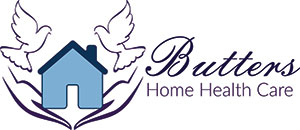Home Health Care Helps Maintain a Heart-Healthy Lifestyle to Treat and Prevent Heart Disease
There are a few healthy basics to maintaining a healthy heart throughout life. These include regular physical activity, don’t smoke, limit alcohol consumption, and get plenty of quality sleep. Now, with the attempt of your seniors to live alone, their efforts to maintain a healthy life could be harder as they continue to grow older. Therefore, home health care can help maintain a heart-healthy lifestyle. Home health care may not need to be there at all hours, but they can help with diet, physical activity, and keeping unhealthy or unsafe habits out of the daily routine, like smoking or alcohol. If your loved one has already had a heart attack in the past, it could be more important than ever to watch all of these things closely.
Home Health Care Fairfax VA – Home Health Care Helps Maintain a Heart-Healthy Lifestyle to Treat and Prevent Heart DiseaseYou’ve Heard of Heart Disease, But What Does It Do?
Heart disease is what’s known as an “umbrella” phrase, meaning it’s used to describe a wide variety of diseases that affect the heart and its blood vessels. All sorts of conditions fall under that umbrella, including arrhythmias (heart rhythm issues), coronary artery disease, and atherosclerosis. Most conditions encompassed by heart disease can increase a person’s risk of heart attack, chest pain, or even stroke. That’s why it is important to have regular check-ups that help gauge a member’s overall health, including the fitness of his or her heart.
Is There a Difference Between Symptoms of Heart Disease and a Heart Attack?
While the basic symptoms of a heart attack are known to everyone, it is hard to know that some additional smaller symptoms of heart disease could mean that there is a long-term or more serious problem on the horizon. If any of these symptoms occur, it may not mean that you have a heart attack right now, but it could mean that it’s time to have a check-up and make sure that any symptoms are brought up to your doctor. It may even be a good idea to head to the hospital to check. The American Heart Association identifies the following symptoms with heart disease or a heart attack:
- Pain, numbness, and/or tingling in the shoulders, arms, neck, jaw, or back
- Shortness of breath when active, at rest, or while lying flat
- Chest pain during physical activity that gets better when you rest
- Lightheadedness
- Dizziness
- Confusion
- Headaches
- Cold sweats
- Nausea/vomiting
- Tiredness or fatigue
- Swelling in the ankles, feet, legs, stomach, and/or neck
- Reduced ability to exercise or be physically active
- Problems doing your normal activities
Heart disease and heart attack symptoms are often different for women than men. Unlike men, women may not feel chest pain, while they may often feel the less likely symptoms of pain radiating down the arms or extreme fatigue.
The Heart Also Changes with Age
Over the age of 65 everyone becomes more at risk of suffering a heart attack, stroke, or heart disease. This is due to the changes in the heart and blood vessels over the years, like the heart not beating as strong as it did in youth, especially in physical activity or times of stress. However, the heart rate does not tend to change from what it was in the past. For all of these potential risks, there are changes to the body like a buildup of fatty deposits as you age, though things can be done to reduce risks. Your loved one may not realize this, and it could likely be helpful to have home health care available to watch for any of those possible symptoms associated with aging, especially if heart disease runs in your family.
Other factors, such as thyroid disease or chemotherapy, may also weaken the heart muscle. Things you can’t control, like your family history, might increase your risk of heart disease. But, leading a heart-healthy lifestyle might help you avoid or delay serious illness. Considering the relation of the heart to so many diseases, it is helpful to have home health care available to your loved one if they already have another illness or if they have a history that could place them at risk for a heart attack or heart disease. Home health care is able to help make sure that your loved one’s needs are met while they are still hopefully preventing or watching for early signs of heart disease.
Sources: https://www.nia.nih.gov/health/heart-health-and-aging
